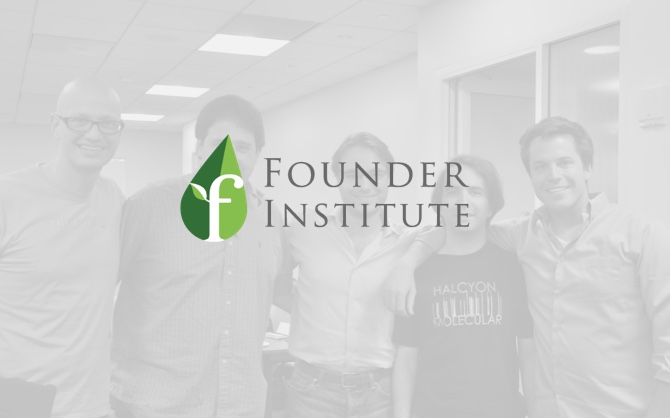
The Startup Ecosystem Canvas project seeks to provide local entrepreneurs with a clear list of resources for every stage of their startup journey, and outline a basic framework for communities to map their ecosystem.
With applications for the Helsinki Founder Institute coming to a close, we are excited to release the Helsinki Startup Ecosystem Canvas! It was developed by the Helsinki Founder Institute and local leaders Janne Saarikko, John Hills, Jose Jacome, Sini Kolehmainen, Tasha Tolmacheva, and Reidar Wasenius.
This is just a rough draft - more input is needed, so please leave your comments on this collaborative Google document, and it will be considered for the next update.
If you are looking to launch a company in Helsinki, then apply to the Helsinki Founder Institute today.
Startup Stages
There is no one right way to build a technology company, but for the sake of simplicity we have outlined a basic, common, sequential framework.
1. Idea Stage
This is where new entrepreneurs get inspired, learn best practices, develop skills, validate ideas, and begin to build their team and product.
- Inspire
- Startup Media: Centralized local information, listings, and news. (i.e. startup blogs/ publications/ lists/ FB groups/ newsletters, etc)
- Inspirational Events: Open, inclusive, beginner startup events (i.e. Startup Weekend, idea fairs, and inspirational meetups)
- Educate
- Best Practices: Beginner knowledge-sharing events. (i.e. beginner events that serve to educate more than inspire, like Startup Founder 101, etc).
- Training & Feedback: Skill & Idea development. (Ex. bootcamps and comprehensive training programs, like Founder Institute,, etc)
- Validate
- Team Formation: Resources for teaming up. (i.e. events or other resources that facilitate early-stage recruitment and cofounder matching)
- Build First Product: Hackathons & resources to build. (i.e. hackathons and other builder-focused events and resources)
2. Launch Stage
In this stage, entrepreneurs establish and formalize the company, develop the product, get feedback from customers, and prepare for the next step.
- Start
- Establish: Law firms & banks for startups
- Workspace: Co-working and flexible workspaces (note: “official” office space goes in 3.1.a. Infrastructure)
- Develop
- Formalize: Accounting, development and HR for early-stage startups.
- Prepare for Seed: Incubators and advanced mentorship. (i.e. advanced knowledge sharing, later stage events and resources for startup teams)
- Launch
- Seed Accelerators: Seed funding mentor programs (Techstars-style programs that provide funding)
- Pitch & Demo: Show local startups for investment (i.e. demo days for companies seeking seed investment)
3. Growth Stage
Here, a startup proves their utility, receives recognition, and scales up. This usually requires funding, angels, VCs, and ways to connect them to startups.
- Recognition
- Investor Networking: Connect professional investors with founders. (i.e. events or groups that facilitate connections with professional investors)
- Major Media: Mainstream local business press. (i.e. major local or regional publications that frequently champion local businesses)
- Funding
- Angels / Micro-VCs: Seed-stage investors
- Venture Capitalists: Series A and beyond
- Growth
- Infrastructure: Office space, HR, local business insurance. (i.e. office space/ HR/ insurance providers for capital-rich companies to grow and scale)
- Expansion: Growth accelerators/consultants. (i.e. programs and business consultants for capital-rich companies to grow and scale)
- Marketing communications: International growth marketing & PR (Marketing and media relations consultants)
4. Success Stories
Successful homegrown companies that have raised significant institutional funding, employ a large workforce, or have achieved liquidity.
- Bitbar
- Canatu
- Grand Cru
- Jolla
- Kiosked
- Kuori Oy
- M-Files
- Next Games
- Nonstop Games
- Rovio
- Smartly.io
- Supercell
- Walkbase
- Yogaia
- Rightware
- Oppex
- Zervant
Supporters
To facilitate the steps, every ecosystem needs strong supporters.
1. Evangelists
Successful local founders who lead the ecosystem & frequently mentor newbies.
- Aape Pohjavirta
- Arto Tolonen
- Aki Järvilehto
- Christian Lindholm
- Ilkka Kivimäki
- Inka Mero
- Janne Aaltonen
- Jaana Pylvänen
- Janne Saarikko
- Jiri Koivuniemi
- Jussi Heinilä
- Juuso Koskinen
- Kaija Pöysti
- Kari Mikelä
- Kristo Ovaska
- Linda Liukas
- Maria Sipilä
- Marko Kaasila
- Micke Paqvalen
- Mika Marjalaakso
- Mike Bradshaw
- Miki Kuusi
- Nina Ignatius
- Oki Tåg
- Oskari Kettunen
- Paavo Beckman
- Peter Vesterbacka
- Petteri Koponen
- Petri Aukia
- Reidar Wasenius
- Riku Mäkelä
- Sari Baldauf
- Teemu Polo
- Tommi Hietavuo
- Tiina Zilliacus
- Tuomas Wuoti
- Ville Vesterinen
- Inka Mero
- Harry Santamäki
- Torsti Tenhunen
- Oskari Lehtonen
- Kaj Hagros
2. Government
Public organizations that facilitate local economic development
3. Talent
Major local business or tech universities and employers that attract and retain local talent.
- Local Universities (universities with prominent technical or business programs)
- Local Employers (Major technical employers, like Microsoft or Google or large local companies, with large local offices)
Learn more about the Startup Ecosystem Canvas here, and leave us your thoughts on the Helsinki Canvas on this collaborative Google document, or on Twitter using the hashtag #ecosystemcanvas. This is a perpetual work in progress, and it will be updated frequently, so we want your feedback!



